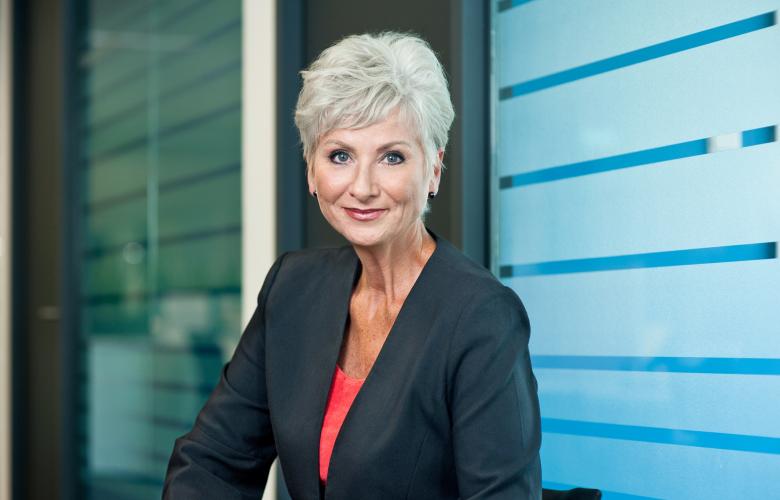Trends in a recovering accommodation market
Contact
Trends in a recovering accommodation market
2020 was a year of unprecedented disruption for the hotel and accommodation sector in Australia and New Zealand, as international demand disappeared, and domestic travel was impacted by state-based COVID-19 travel restrictions.
2020 was a year of unprecedented disruption for the hotel and accommodation sector in Australia and New Zealand, as international demand disappeared, and domestic travel was impacted by state-based COVID-19 travel restrictions.
To support the local tourism sector, government incentives like regional travel vouchers were introduced, and in March the Australian government unveiled a $1.2 billion recovery plan for the tourism industry, with a focus on domestic travel.
A domestic-led recovery for the tourism sector is now underway with Qantas reporting they expect their domestic capacity will reach 95% of pre-pandemic levels in the current quarter. And while few hotels are seeing occupancy levels match 2019 patterns, there is certainly an uplift in demand compared to twelve months ago.
So what trends are emerging from the new domestically led recovery for the local tourism sector that will help them grow business in a recovering market?
Educating new guests for new travel experiences
With international travel restrictions in place, the domestic tourism segment currently features a broader subset of customers looking for alternative holiday options because they do not have the flexibility to be able to leave the country.
Peter Ferris, Chief Sales & Marketing Officer for RMS Cloud, observed, “We're seeing strong demand for holiday parks, motels, apartments and hotels based in specific destinations and outside of major city centers. These properties have an entirely new subset of customers approaching them and who have never experienced their particular type of property before. While these new customers are certainly welcomed, the properties are dealing with a new range of customers who have (for instance) never stayed at a holiday park before. They are used to another style of accommodation.”
As a result, accommodation providers benefitting from new customer segments due to international travel restrictions need to focus on educating the customer through forward marketing to ensure a guest understands what they are buying, what they're getting and what type of experience is on offer. Doing so can help avoid any unmet expectations and foster positive guest perceptions.
Enhance your data to understand demand
Hotels traditionally rely on historical data to help understand booking patterns and their forward demand. However, historical data from 2020 is not a good indicator of likely business today given the massive disruption that occurred last year.
“Hotels are finding that historic data is not as relevant anymore due to significant market changes. What's also changing is the traveller perspectives, the personas, new micro sub-segments that have evolved now, which weren't prevalent earlier in pre-pandemic times, making forward-looking and real-time data more relevant for hotels in order to respond faster to the new market changes and drive better revenue,” commented Kamesh Shukla, EVP of APAC and MEA for RateGain.
Given the current conditions, hotels must establish clear standards for data collection processes. Hotels must gather macro-level intelligence such as information on new source markets, along with border and travel restriction policies and how they impact market trends and travel intent. Generating granular-level data is also important, including promotion and value-inclusion based benchmarking against competitors, mobile app and closed user group pricing, and look to book ratio to measure ROI from existing and new online channels.
Drive direct business online
While OTAs remain a key driver of occupancy, even for smaller regional operators, there has been a move towards direct bookings in the region that opens up new business opportunities.
“Interestingly, there has been strong growth in direct bookings within the Australian market recently. Our data showed us that in Oceania, direct bookings were the number two channel in that region.
Following booking.com, direct bookings are now the second largest channel in the region, highlighting that people are not only committed to supporting local businesses, but they are also becoming more savvy around trying to strike a deal directly with a property. This is also potentially a reflection of cultural difference where people from Australia prefer the personal touch and don’t mind dealing directly with an accommodation provider,” said Edwin Saldanha, Regional Manager of Oceania and Head Of Marketing for STAAH.
Given the cost associated with doing business with OTAs, hoteliers should explore all opportunities to grow bookings from alternative channels. Importantly, the most cost-effective online booking channel for a hotel remains its own website. But how can you maximise direct bookings through your website?
“Online reputation management is also critical for accommodation providers today to understand what your customers are talking about. If people are speaking about a particular property, whether it be a hotel, holiday park, a larger accommodation, or a B&B, what are they saying about it? What do the reviews mean? People often research a property online before booking—and positive reviews can lead not only securing a booking, but also enhance your chances of securing that booking directly,” said Saldanha.
Adapt to changing market conditions
How do hotels operate through an uncertain market? Hoteliers might have a solid marketing strategy and distribution scenarios in place, but what happens if state borders close due to a COVID-19 outbreak?
What if your key market is strong, but your secondary domestic market changes? What impact could it potentially have on business, or staffing, or food and beverage purchasing? Operating in today’s market is not just about what occupancy levels look like for next week, but how is your hotel going to adapt when conditions change.
“To help understand changes in the market today, hoteliers are saying to me that they are looking for additional sources of demand intelligence. They are also re-looking at their customer data to identify new analysis points to help provide additional insights to help them chart a path forward,” said Ferris.
As the market for domestic travel returns and evolves, hotels must be agile. The ability to pivot quickly and realign marketing or operational strategies based on changing booking conditions, or government restrictions, will be a key to short-term success.
Written by Rachel Grier, Area Vice President, Asia Pacific IDeaS
For more information on how independent hotels can benefit from automated revenue systems, please visit: www.ideas.com
Click here for more information about IDeaS.
The views expressed in this article are an opinion only and readers should rely on their independent advice in relation to such matters.
Similar to this:
Why independent hotels need to automate to rebound from COVID-19 - IDeaS
5 Revenue Opportunities for Australian Hoteliers in 2021 - IDeaS









